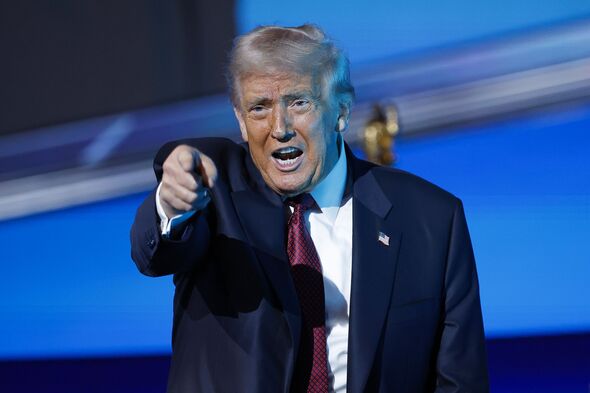A covert plan to assassinate Venezuelan President Nicolás Maduro has reportedly been developed by U.S. officials, drawing comparisons to the operation that killed Osama bin Laden. According to sources cited by The Daily Mail, this plan is already “teed up” and awaiting authorization from President Donald Trump. The operation reflects ongoing tensions between the U.S. and the Venezuelan government, which has been accused of colluding with criminal enterprises.
In 2020, the U.S. Department of Justice, under President Joe Biden, charged Maduro with effectively transforming Venezuela into a criminal organization that aids drug traffickers and terrorist groups. An indictment from New York prosecutors detailed allegations that Maduro and his associates conspired with Colombian rebels to use the cocaine trade as a “weapon against America,” according to reports from the Associated Press.
Despite claims from U.S. intelligence agencies that Trump’s assertions about Maduro’s connections to the Tren de Aragua gang are unfounded, the military has deployed an unusual number of Navy vessels near South America. This military buildup has raised concerns about a potential invasion of Venezuela and a direct attack on Maduro.
Military Action and Congressional Response
Reports indicate that a Special Forces operation aimed at eliminating Maduro is similar to the SEAL Team Six raid ordered by President Barack Obama in 2011, which resulted in bin Laden’s death. Meanwhile, Senate Republicans recently rejected legislation that would limit Trump’s ability to attack Venezuela, even as Democrats called for increased congressional oversight regarding military actions against Maduro.
Senate Foreign Relations Committee Chair Jim Risch has stated that the Trump administration must provide more information regarding military operations targeting drug-smuggling vessels in the Caribbean and eastern Pacific Ocean. Notably, Trump has defended these military actions as essential for protecting Americans from the influx of lethal narcotics. He claimed that drug traffickers were attempting to smuggle enough drugs into the U.S. to potentially kill between 25,000 and 50,000 people, likening the situation to the September 11, 2001 attacks.
The Trump administration has conducted at least 17 strikes in the region, resulting in numerous fatalities. However, officials have faced criticism for not providing Congress with sufficient evidence linking these attacks to drug trafficking networks or detailing the identities of the involved cartels.
Legal and Ethical Concerns
Despite the escalating military actions, significant debate continues in Congress regarding the limits of presidential power in this context. The strikes have occurred without a formal declaration of war from Congress, prompting questions about the legal justification for such operations. Representative Adam Smith expressed concerns over the lack of transparency, stating he had “never seen such a staggering lack of transparency.”
Trump has made it clear that he intends to continue these military strikes, asserting that the U.S. is engaged in an “armed conflict” with drug cartels. He has indicated that he does not plan to seek a formal declaration of war, stating simply, “we’re just gonna kill people.” His remarks came after he expressed frustration over not receiving a Nobel Peace Prize for his diplomatic efforts.
This ongoing situation underscores the complexities of U.S. foreign policy in Latin America and raises critical questions about the balance between national security and legal accountability. As discussions in Congress evolve, the international community watches closely, aware of the potential repercussions of these military actions on regional stability.
